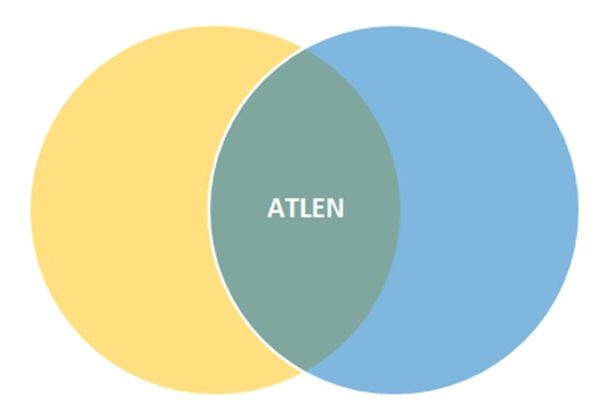A therapist with lived experience is a registered psychologist, psychotherapist, counsellor, or other trained therapist who has also had personal experience of mental-health challenges. Therapists with lived experience (TLEs) deliver best-practice interventions according to their professional training and are informed by the human rights and recovery perspectives of the service-user movement. Of course, one doesn’t require lived experience to be able to do this, but having lived experience certainly helps. Fortunately, many therapists have lived experience of mental-health challenges, even though they are often covert about this among their colleagues.
The term ‘mental health challenges’ is our way of referring to mental health problems, ‘disorders’ or diagnoses without relying on language many people find pathologising. Therefore, when we say ‘lived experience of mental health challenges’ we mean personal experience of mental health conditions like depression, anxiety disorders, ptsd, bpd, eating disorders, psychosis, or bipolar disorder (etc.) though we may not personally describe our experiences this way ourselves, and may not have received or been informed of a clear, formal diagnosis. Lived experience refers to direct experience of living through these challenges, and is distinct from indirect experiences as a family member or friend. Just like all humans, TLEs may face mild to severe challenges with their mental health, and vary in the level of support and intervention used. Some TLEs consider their mental health challenges to be entirely in the past, some continue to manage these challenges to varying degrees, and others first encounter their lived experience during the course of their careers due to their roles and/or other life events.
Patricia Deegan traces the origins of the term ‘lived experience’ to the peer support workforce, where a history of mental-health difficulties is appreciated to be a rich source of expertise rather than being viewed as a stigmatised problem that should be kept hidden.
This is not a new way of looking at things. In 1972 a group of clinicians and service-users came together in England and began to organise the first Mental Patients Union, with the publication of what came to be known as The Fish Pamphlet. The Fish Pamphlet shared a list of demands that focused largely on a call for the clinical world to value service-user’s own expertise in what worked for them and their right to informed choice. The front cover featured a drawing of a fish caught on a hook together with an excerpt from Karl Menninger’s 1937 book The Human Mind, which highlights the special value added by insider knowledge.
“When a trout rising to a fly gets hooked and finds himself unable to swim about freely, he begins a fight which results in struggles and splashes and sometimes an escape…. In the same way, the human struggles … with the hooks that catch him. Sometimes he masters his difficulties; sometimes they are too much for him. The struggles are all that the world sees, and it usually misunderstands them. It is hard for a free fish to understand what is happening to a hooked one.”
– Dr Karl Menninger, 1937, The Human Mind
Groups formed overseas in recent years have worked to define what it means to be a therapist with lived experience. In the UK, there is the In2Gr8 Mental Health initiative, which was established in 2017 by clinical psychologist Dr Natalie Kemp, who writes
“Mental health professionals with lived experience are many and diverse, we represent those who have experienced mental health challenges in the past and have brought understanding of transformation and hope with us as inspiration and gifts to help ease distress and show hope to others from this point of knowing. … We are informed in our practice by both formal trainings and by our own lived experience. We learn how to balance what we hear from others to help them and what we hold of our own, we know that this may be similar and different. … We understand that any of us can be in either chair in the therapy room…”
– Dr Natalie Kemp, In2Gr8 Mental Health, 2017
Some therapists with lived experience are comfortable in managing the benefits and potential risks of disclosing their dual identities to colleagues and/or clients, or would like to learn more about this. Others are more comfortable keeping a firm divide between their professional and personal lives and prefer to keep this information private. However, all mental-health professionals are influenced by their personal experiences; therapists with lived experience are no different. Just like other therapists, our personal strengths, professional training, supervision processes and support networks can afford us the necessary skills and space to reflect on and manage the challenges this can bring.
Service-user groups have described some of the risks clinicians face if we are not able to talk about and reflect on our own lived experiences of mental-health challenges.
“Consumers tell us that there are some clinicians with lived experience of ‘mental illness’ whose own practice is less than ideal (or even terrible). This is not so hard to believe. It happens in other areas of life as well, where people try to distance themselves from a horrible experience. Some of us behave in ways that are the opposite to what’s good – from a consumer perspective – because we so much want to be ‘A Professional’ and get away as far as we can from the embarrassment of our ‘mental illness’.”
– Two Hats: Consumers Who Are Also Clinicians
Initiatives like ATLEN in NZ, In2Gr8 Mental Health in the UK, and the recently launched Many Hats Network in Australia hope to make lived experience something clinicians can be proud of as a taonga, a treasured resource that we carry with care.

